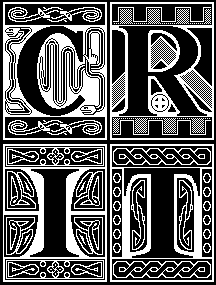presented at the World Conference on Computers in Education, Birmingham, England, 1995
Jerry Stratton
Any living culture is always changing. They are subject to the standard evolutionary forces. Contact with individuals of other cultures, exposure to fringe individuals of the same culture, and environmental changes all have their effect on cultural change. The computer affects all of these.
Successful integration of computers into an economy by definition means a strong change in the economic environment. On a deeper and more profound level, however, the computer itself is an individual. Even the simplest of computers are interactive. Using a computer is an act of initiating a dialog with that computer, and any values that the computer carries.
Global computer networks open the possibility of dialog with members of any other network-literate culture. Even stranger, however, is that on the Internet, the act of talking to an individual and talking to a computer will often be identical.
If computers and computer networks are to be integrated into any culture, care must be taken during and after the introduction.
The most obvious danger to avoid is censorship or prohibition of certain things. If those things are desired by the population or by a significant subset, a black market in technology or information will develop, accelerating the clash of cultures. Black market forces are rarely manageable.
The most important step will be providing culturally familiar venues for use of the net. Physical and virtual cybercafés are evolving today, and may hold an important part of a solution.
Physical “cybercafés” are usually coffeeshops, but could as well be bars or any other popular meeting ground. Using the Internet from such a setting is a group process. The group will be members of the local culture, and the setting will be a setting that is already a part of the culture.
On-line “cybercafés”—on-line meeting places and discussion areas—might also be made available in culturally familiar topics on culturally familiar terms. Computers might be chosen that encourage local networks.
When computers and networks are used to solve problems, they should be used to solve problems that are seen as problems from within the culture, not problems as seen by outsiders.
Cultures evolve as the people within those cultures change what they value. To preserve culture in the face of direct access to other cultures, the people must value their own culture.
They must be skilled in cultural interaction—there are interpersonal skills applicable to interaction between individuals of different cultures. These skills reduce or remove the effects of culture shock.
Much research in tourism, business travel, and student exchange may be applicable to this end. For example, there is some evidence that multi-lingualism, where one language is used for local affairs and another for intercultural affairs, facilitates cultural integrity in individuals.
Above all, it must be remembered that “culture” is a set of values held by individuals. The three forces that act on culture—education, exposure, and environment—will all be affected in a major way by the adoption of a global interactive network.
The Internet provides a culture of its own, and it provides a path to other cultures. Individuals on a computer network have access to cultural standard-bearers who view themselves as part of the Internet, and, or part of their local culture. The net will modify the economic and policital environment, and will have other effects that remain to be seen. As an exposure to external models of behavior, the net is paralleled only by tourism and war.
It has been widely held that cultural studies offers means by which members of different cultures may interact without prejudice. With the advent of global computer networks, it may also become important to facilitate cultural interaction while retaining cultural integrity. Otherwise, “culture shock” may easily become a domestic disease.
